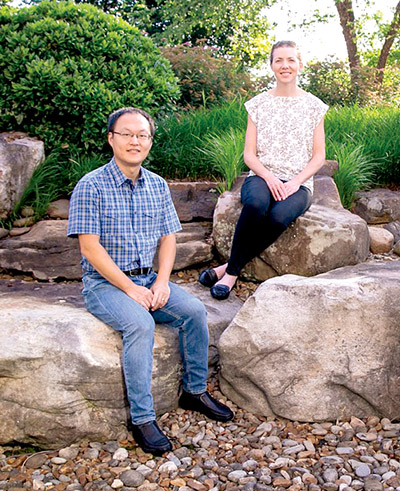DOE clean energy research awards earned by locals

“These ORNL researchers exemplify the groundbreaking work done by DOE to advance clean energy technologies and scientific discovery,” ORNL director Thomas Zacharia said. “Supporting these scientists as they begin their careers will have a lasting impact on ORNL’s and the nation’s research efforts in critical fields.” Zhang, a computational mathematician in the Computer Science and Mathematics Division, was selected by the Advanced Scientific Computing Research Program for his proposal, “Advanced Uncertainty Quantification Methods for Scientific Inverse Problems.”
“Zhang’s research will address … challenges in inverse sampling by building deep neural networks, a type of artificial intelligence,” an ORNL press release stated. “… Ultimately, the networks will improve efficiency and accuracy while solving inverse sampling problems relevant to DOE research.”
Herndon, a senior Research & Development staff member in the Environmental Sciences Division, was selected by the Biological and Environmental Research program for her proposal, “Biogeochemical Controls on Phosphorus Cycling in Urban-influenced Coastal Ecosystems.”
“Coastal river deltas, home to more than 300 million people worldwide, are experiencing significant degradation and erosion as a result of human activities,” the release stated.
“This, in conjunction with chronic sea level rise, has made low-lying coastal communities more vulnerable to the effects of flooding and increased salinization,” the release added. “The Louisiana Gulf Coast, for example, has experienced significant land loss as a result of urban flood prevention measures.
“… Herndon’s research will examine how flooding by freshwater and seawater affect interactions between the nutrient phosphorus and the elements iron and manganese in coastal river deltas in order to improve predictive modeling capabilities.”
For five years, awardees will receive $500,000 annually to cover salary and research expenses.


